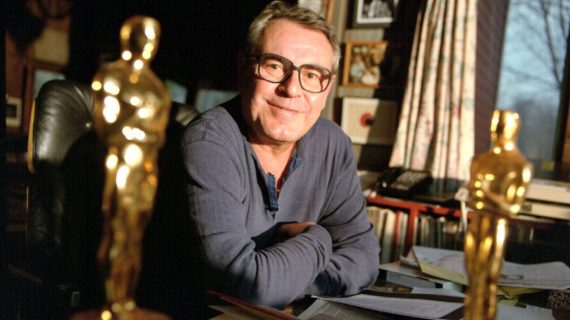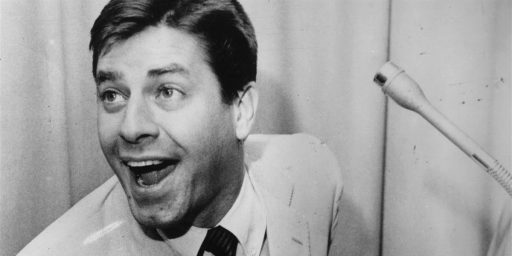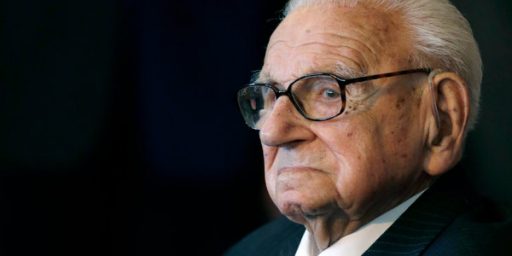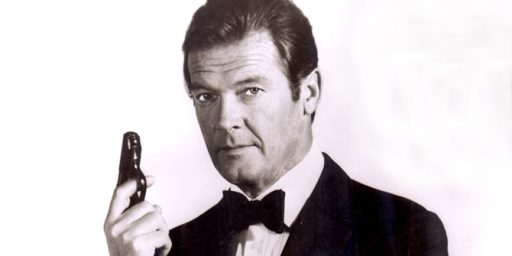Two-Time Oscar Winning Director Milos Forman Dead At 86
The Director of 'One Flew Over The Cuckoo's Nest' and 'Amadeus,' both of which won the Academy Award for Best Picture, has died at the age of 86.
Milos Forman, who directed two Academy Award winning films in two different decades, has died at the age of 86:
LOS ANGELES — Milos Forman, a filmmaker who challenged Hollywood with his subversive touch, and twice directed movies that won the Oscar for best picture, died on Friday. He was 86.
His death in Connecticut was confirmed by Dennis Aspland, Mr. Forman’s agent, and by Vlastislav Malek, a representative of his hometown, Caslav, in the Czech Republic.
A native of what was then Czechoslovakia, Mr. Forman came to the United States in the late 1960s as a rebellious young filmmaker whose satirical bent was little welcomed at home in the wake of the 1968 Soviet invasion.
Just a few years later, Mr. Forman’s “One Flew Over the Cuckoo’s Nest” — a tragicomic story of revolt and repression in a mental institution — won five Oscars, including those for best director and best picture.
The film put Mr. Forman in the front rank of those who struggled to make big, commercial films with countercultural sensibilities. His sympathy for the odd man out was always apparent, even as his movies grew in scope.
“Amadeus,” a 1984 adaptation of Peter Shaffer’s stage play, presented Wolfgang Amadeus Mozart as a genius who undermined authority with his art. Again, Oscars for best director and best picture were among its many honors.
Still, Mr. Forman, by then a United States citizen, said one of his greatest pleasures from the film — which was shot in the Czech Republic — was the chance to return in triumph to his homeland.
“I’ve always done everything in my life to win,” Mr. Forman said of himself in a 1994 biography, which was entitled “Turnaround: A Memoir,” and was written with Jan Novak.
Mr. Forman was caught up in the turmoil of German occupation not many years after his birth, in Caslav, on Feb. 18, 1932. Both his mother, born Anna Suabova, and the man he believed to be his father, a teacher named Rudolf Forman, had been separately seized by the Germans and killed in death camps.
For years, Mr. Forman vaguely told interviewers that he believed himself to be half-Jewish, though both parents attended a Protestant church. It was Mr. Novak, in researching “Turnaround,” who ended the mystery.
After the 1964 release of his first feature film, “Black Peter” — about the misadventures of a teenager beginning his work life — Mr. Forman was contacted by a woman who had been with his mother in Auschwitz, Mr. Novak learned and eventually reported. The woman explained that Mr. Forman was actually the son of a Jewish architect with whom Mr. Forman’s mother had an affair. In time, Mr. Forman found his biological father, who survived the war and was living in Peru.
Raised by foster parents, Mr. Forman attended film school in Prague, and first made his mark with his work on a film and theater presentation at the 1958 Brussels World Exhibition. An early feature, “The Loves of a Blonde,” won attention on the international festival circuit in 1965. Another, “The Firemen’s Ball,” two years later, rubbed Czech officials the wrong way with its spoof of the firefighting bureaucracy, though Mr. Forman was already turning his attention to opportunities abroad.
When the Soviets invaded in August of 1968, Mr. Forman was in Paris negotiating to make a Hollywood film. His first American feature, a youth comedy called “Taking Off,” was released by Universal Pictures in 1971. It did so poorly, Mr. Forman later said, that he wound up owing the studio $500.
Through the early 1970s, Mr. Forman — a hearty bon vivant without means for the good life — went through a period of self-described depression. For much of that time, he holed up in New York’s Chelsea Hotel, sleeping through the days and communicating with émigré friends.
By then, he had been married twice, first to an actress, Jana Brejchova, then to another performer, Vera Kresadlova, who had remained in Czechoslovakia with their two sons, Petr and Matej.
In addition to Petr and Matej, he is survived by Martina Formanova, his third wife; and his twin sons, James and Andrew, with Ms. Formanova.
In his memoir, Mr. Forman said the producers of “Cuckoo’s Nest,” Michael Douglas and Saul Zaentz, sought him out because “I seemed to be in their price range.” In fact, they had made a perfect match between filmmaker and material, in this case a cult novel by Ken Kesey.
Jack Nicholson was the movie’s star. But Mr. Forman — who liked to coax star performances out of lesser-known actors — did exactly that with Louise Fletcher, who won an Oscar for her portrayal of the dictatorial Nurse Ratched.
“Hair” and “Ragtime,” which came next, left less impression, but kept Mr. Forman on the list of directors whom executives were willing to trust with their more sophisticated projects. In 1978, meanwhile, Mr. Forman joined Frantisek Daniel, another Czech, as co-director of the film program at Columbia University’s school of the arts.
It was for Mr. Zaentz that Mr. Forman next struck gold, with “Amadeus.” The film won eight Oscars, and Mr. Forman later wrote, left him with a bittersweet, and ultimately correct, sense that his career had peaked.
“Valmont,” based on an 18th-century novel by Pierre Ambroise François Choderlos de Laclos, was overshadowed in 1989 by the previous year’s release of “Dangerous Liaisons,” a film by the director Stephen Frears, which used the same underlying material.
Mr. Forman next made a series of films each of which pushed Hollywood out of its comfort zone.
“The People vs. Larry Flynt” pressed the limits of tolerance for an antihero with its sympathetic portrait of the Hustler magazine publisher Larry Flynt. Released by Columbia Pictures in 1996, it was a box-office bust, with domestic ticket sales of only about $20 million.
In 1999, “Man on the Moon,” Mr. Forman’s complex portrait of the comic Andy Kaufman and his alter-ego Tony Clifton, did only a little better for Universal Pictures. Yet the film left a mark on Mr. Forman’s personal life. Shortly before its release, he married Martina Zborilova, who had worked with him earlier as a production assistant. He became the father of twin sons, whom the couple named Andrew, for Mr. Kaufman, and James, for Jim Carrey, the movie’s star.
More from Variety:
Czech-born director Milos Forman, who won best directing Oscars for “One Flew Over the Cuckoo’s Nest” and “Amadeus,” has died. He was 86.
Forman died Friday in the U.S. after a brief illness, his wife, Martina, told the Czech news agency CTK. She said that “his departure was calm, and he was surrounded the whole time by his family and his closest friends.”
Forman was also known for directing “Hair,” “Ragtime” and “The People vs. Larry Flynt.”
Directors’ Guild president Thomas Schlamme said, ”Miloš was truly one of ours. A filmmaker, artist, and champion of artists’ rights. His contribution to the craft of directing has been an undeniable source of inspiration for generations of filmmakers. His directorial vision deftly brought together provocative subject matter, stellar performances and haunting images to tell the stories of the universal struggle for free expression and self-determination that informed so much of his work and his life.
“A member of the DGA’s National Board and a recipient of the DGA’s highest honor, the Lifetime Achievement Award, Miloš actively championed artist’s rights throughout his career, speaking multiple times before Congress and world audiences about the importance of creative rights and artists’ protections against the violation of those rights. He stood up on behalf of his beloved fellow filmmakers time and again, and he believed with all his heart that creativity and artistic freedom could make a difference in the world. Now it’s up to us to prove him right. We will miss him.”
Having made just one American film at the time, the ironic comedy “Taking Off” (1971), which won critical acclaim but failed to connect with audiences, Forman seemed an unlikely choice to direct the adaptation of Ken Kesey’s countercultural novel “Cuckoo’s Nest.” But he brought a balance and objectivity to the film, which could easily have descended into histrionics. The critically lauded and immensely popular film starring the fast-rising Jack Nicholson struck a nerve in 1975, and on Academy Awards night it became the first film since 1934’s “It Happened One Night” to sweep the top five Oscar prizes: best picture, director, actress, actor and screenplay (adapted).
To shoot “Amadeus,” Forman returned to his native Czechoslovakia in 1983 and used little-known theater actors to play Wolfgang Amadeus Mozart (Thomas Hulce) and his rival Antonio Salieri (F. Murray Abraham), Forman created a compelling and cogent adaptation of Peter Shaffer’s award-winning stage play — helped in great measure by the magnificent Mozartian score. Again, Forman ruled the Oscars, taking another director trophy as the film also drew awards for picture, actor (Abraham), and screenplay, winning eight awards in all. The film was also his most financially successful after “Cuckoo’s Nest.”
With a style that film historian David Thomson said stressed the everyday over the melodramatic and a flair for improvisation, Forman had flourished as a young director in Czechoslovakia with such satirical films as 1966’s “Loves of a Blonde” and 1968’s “The Firemen’s Ball,” the latter of which was refused a showing in his native country because of its satire of bureaucratic thinking.
Forman was in Paris in August 1968 when Russian tanks rolled into Czechoslovakia, ending the Warsaw Pact country’s brief artistic renaissance. Soon thereafter he moved to New York, joining another celebrated Czech director, Ivan Passer, who had penned “Loves of a Blonde” with Forman and others. Forman’s first U.S. film, “Taking Off,” was similar in approach and style to his earlier work, and while it was praised by critics, it did little to establish him as an American director. He also took on “The Decathlon” episode of “Visions of Eight,” a compilation documentary of the Olympics by an octet of different helmers.
Over the years Forman directed few films, and his American track record was mixed. Though “Cuckoo’s Nest” transformed him into an A-list director, he waited four years before his next film, tackling another challenging piece of material, “Hair,” based on the ’60s smash hit musical. But 10 years later, the episodic piece seemed passe onscreen, and Forman’s simple approach was ill-suited for the musical material. He did better with 1981’s “Ragtime,” a mostly successful adaptation of E.L. Doctorow’s bestseller centered on intersecting lives in the early 20th century. The film did not score at the box office, however.
He attained commercial and critical success once more with “Amadeus” but never quite scaled those heights again.
(…)
Born in the town of Caslav (also spelled Kaslov), near Prague, Jan Tomas Forman was raised by an uncle and in foster homes following the death of his parents in WWII concentration camps. After graduating from the Prague Film Faculty of the Academy of Dramatic Arts in 1957, he wrote sketches for the mixed media Laterna Magika, which was celebrated at the 1958 World’s Fair in Brussels. After departing the group in 1961, he was hired by the Czech state film studio, where he came to attention with two medium-length films, 1961’s “The Talent Competition” and “If There Were No Music.” His feature debut in 1963, “Black Peter,” won the top prize at the Locarno Film Festival and led to such internationally acclaimed efforts as “Loves of a Blonde” and “The Fireman’s Ball.”
Forman was jury president at the Cannes Film Festival in 1985 and the Venice Film Festival in 2000.
While Forman was not a household name like American directors such as Francis Ford Coppola, Martin Scorsese, Steven Spielberg, or George Lucas, his work, at it’s best, was equally as impactful and impressive. This was particularly true of ‘Amadeus,” which used a cast that was mostly unknown to American audiences and yet went on to become both widely acclaimed by critics and something of a pop culture phenomenon that has allowed the movie to remain popular even today. ‘Cuckoo’s Nest,” on the other hand, was a classic from the moment it was released and allowed performers such as Jack Nicholson to give some of the best performances of their careers. While part of that is to the credit of the individual actors, it’s also a compliment to the director whose job it is to bring out the performance he envisions from his actors in a way that both advances the plot and plays to the actor’s strengths. Foreman did both in both of his award-winning movies, and Hollywood responded accordingly. He will be missed.
Photo via Los Angeles Times







Kaufman=Trump…?
Lawler=Mueller…?
@Mister Buster:
I hope not, since that would mean Mueller is actually one of Trump’s co-conspirators. The Kaufman-Lawler saga was in wrestling terms a “worked shoot”.
My view of Forman dimmed after watching that documentary about Jim Carrey’s behavior while filming Man on the Moon. A talented filmmaker, for sure, but one too tolerant of his “star’s” bizarre antics.
@Stormy Dragon:…“worked shoot”
You mean…you mean it’s not real?…It’s Fake!?!